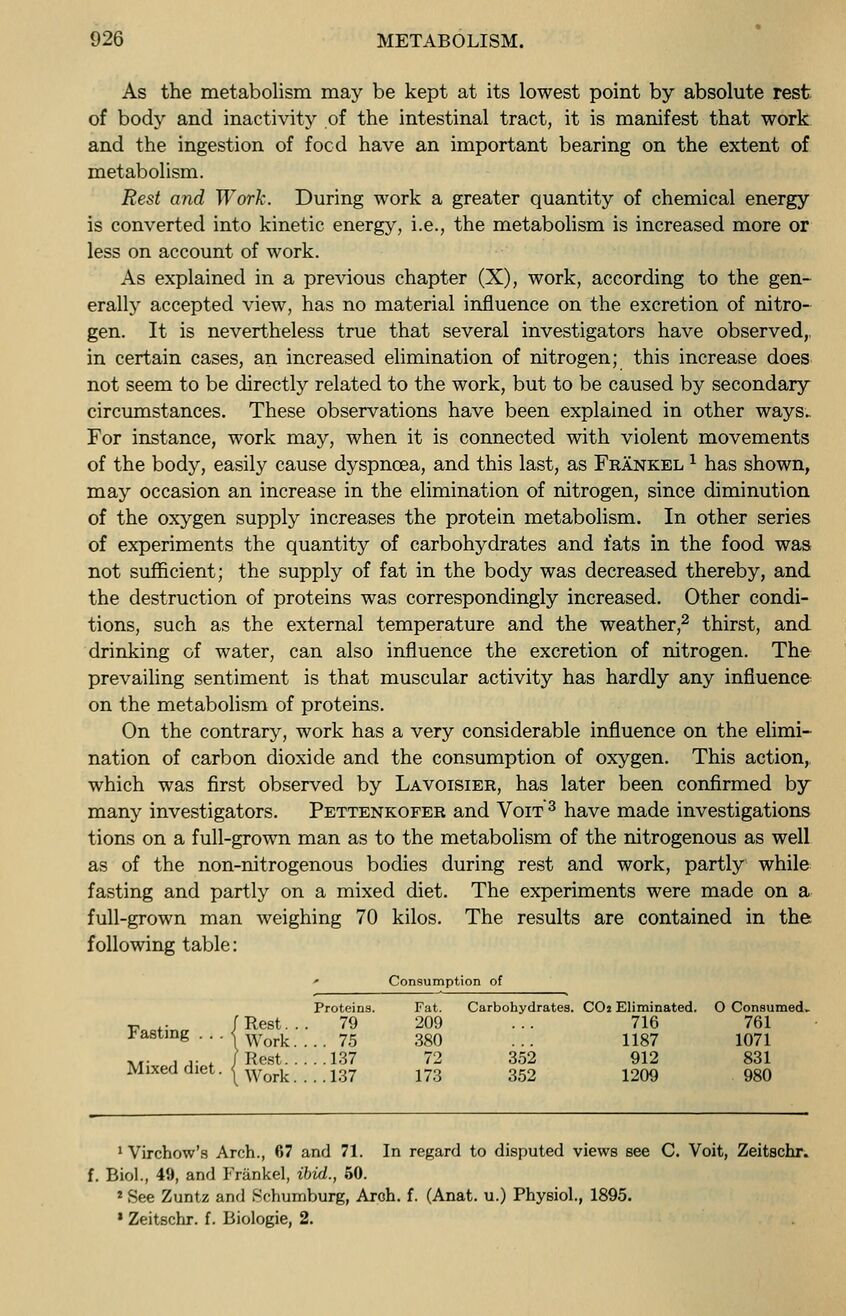
Full resolution (JPEG) - On this page / på denna sida - XVII. Metabolism - IV. The Dependence of Metabolism on other Conditions

<< prev. page << föreg. sida << >> nästa sida >> next page >>
Below is the raw OCR text
from the above scanned image.
Do you see an error? Proofread the page now!
Här nedan syns maskintolkade texten från faksimilbilden ovan.
Ser du något fel? Korrekturläs sidan nu!
This page has never been proofread. / Denna sida har aldrig korrekturlästs.
926 METABOLISM.
As the metabolism may be kept at its lowest point by absolute rest
of body and inactivity of the intestinal tract, it is manifest that work
and the ingestion of focd have an important bearing on the extent of
metabolism.
Rest and Work. During work a greater quantity of chemical energy
is converted into kinetic energy, i.e., the metabolism is increased more or
less on account of work.
As explained in a previous chapter (X), work, according to the gen-
erally accepted view, has no material influence on the excretion of nitro-
gen. It is nevertheless true that several investigators have observed,,
in certain cases, an increased elimination of nitrogen; this increase does
not seem to be directly related to the work, but to be caused by secondary
circumstances. These observations have been explained in other ways.
For instance, work may, when it is connected with violent movements
of the body, easily cause dyspnoea, and this last, as Frankel j
has shown,
may occasion an increase in the elimination of nitrogen, since diminution
of the oxygen supply increases the protein metabolism. In other series
of experiments the quantity of carbohydrates and fats in the food was
not sufficient; the supply of fat in the body was decreased thereby, and
the destruction of proteins was correspondingly increased. Other condi-
tions, such as the external temperature and the weather,2
thirst, and
drinking of water, can also influence the excretion of nitrogen. The
prevailing sentiment is that muscular activity has hardly any influence
on the metabolism of proteins.
On the contrary, work has a very considerable influence on the elimi-
nation of carbon dioxide and the consumption of oxygen. This action,
which was first observed by Lavoisier, has later been confirmed by
many investigators. Pettenkofer and Voit 3 have made investigations
tions on a full-grown man as to the metabolism of the nitrogenous as well
as of the non-nitrogenous bodies during rest and work, partly while
fasting and partly on a mixed diet. The experiments were made on a
full-grown man weighing 70 kilos. The results are contained in the
following table:
Fasting . .
Mixed diet
.
1
Virchow’s Arch., 67 and 71. In regard to disputed views see C. Voit, Zeitschr.
f. Biol., 49, and Frankel, ibid., 50.
1
See Zuntz and Hchumburg, Aroh. f. (Anat. u.) Physiol., 1895.
1
Zeitschr. f . Biologie, 2.
<< prev. page << föreg. sida << >> nästa sida >> next page >>